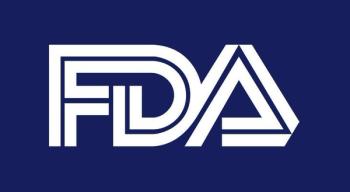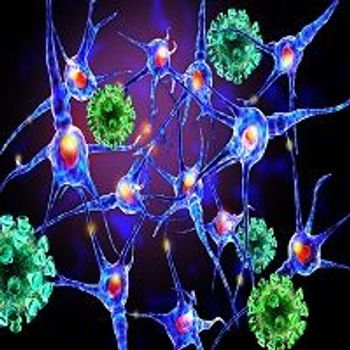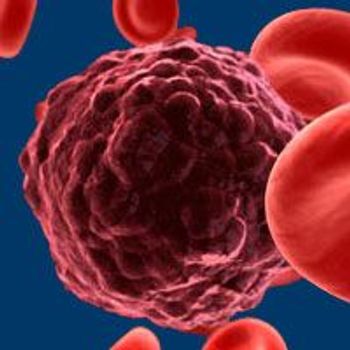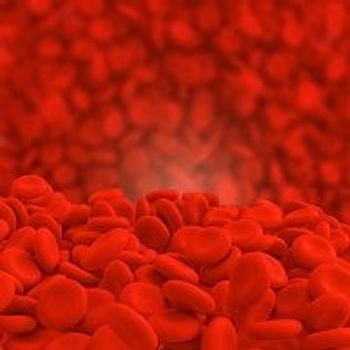
The FDA has expanded the approval of lenalidomide to include its use as maintenance therapy for patients with multiple myeloma following autologous stem cell transplant.

The FDA has expanded the approval of lenalidomide to include its use as maintenance therapy for patients with multiple myeloma following autologous stem cell transplant.

Chimeric antigen receptor T-cell therapies have already produced clinical trial results that, even by the lofty standards set by emerging immunotherapies, have been stunning.

Median overall survival was not yet reached at a median follow-up of 8.7 months on the company’s ZUMA-1 trial.

Evidence is mounting that stem cell transplants help in MS.

Proper care coordination and patient education are essential to the success of delivering chimeric antigen receptor T-cell therapy, particularly in preparing patients for potential adverse events.

The European Commission has expanded the indication for lenalidomide (Revlimid) to include use as a maintenance therapy for patients with multiple myeloma following autologous hematopoietic stem cell transplant.

The FDA has approved lenalidomide as maintenance therapy in patients with multiple myeloma following autologous stem cell transplant.

The advance of CAR-T technology and the rise of immuno-oncology alongside emerging new payment models highlight the annual review in Evidence-Based Oncologyâ„¢, which looks at how researchers are harnessing the immune system to bring unprecedented results in cancer care.

The FDA has approved lenalidomide (Revlimid) as a maintenance therapy for patients with multiple myeloma following autologous hematopoietic stem cell transplant.

Active surveillance prior to initiating targeted therapy might benefit patients with metastatic renal cell carcinoma, since it delays therapy and toxicities.

Dacomitinib induction therapy has shown activity in HPV-negative, locally advanced or metastatic penile squamous cell carcinoma.

David L. Porter, MD, kicked off the 5th annual Patient-Centered Oncology Care® (PCOC®) meeting in Baltimore on November 17, 2016, with an update on chimeric antigen receptor T-cell therapy.

According to results of a prospective clinical study, circulating tumor cell mRNA of full-length androgen receptor (AR) correlated with detection of the AR-V7 variant and with response to AR-targeted therapy for castration-resistant prostate cancer.

An oncologist provides insight on his experience with using CAR-T therapy in the clinic and his prediction for the future of this revolutionary treatment.

An update on immunotherapies and the potential impact of chimeric antigen receptor (CAR)-T cells on oncology care.

A small study found that it is feasible to detect BRCA1/2 reversion mutations in circulating cell-free DNA in patients with recurrent high-grade serous ovarian cancer. Those reversion mutations can help predict poor response to therapy in these patients.

After demonstrating early success in acute lymphoblastic leukemia, CAR T-cell therapies are now expanding into all areas of hematologic malignancies, including non-Hodgkin lymphoma.

Treatment with concurrent ibrutinib improves expansion of chimeric antigen receptor T-cells and could subsequently improve response in patients with chronic lymphocytic leukemia, according to a study presented during the 2017 ASH Annual Meeting.

A study presented at the 2016 ASH Annual Meeting identified potential biomarkers of response to anti-CD19 CAR T-cell treatment in patients diagnosed with chronic lymphocytic leukemia.

Stem cells that give rise to acute myeloid leukemia (AML) and myelodysplastic syndrome (MDS) express higher levels of the CD99 cell surface protein-sugar molecule than normal stem cells.

Stem cell therapy gets dramatic results in MS study.

CML patients who have high expression of the T-cell inhibitory receptor (CTLA-4)-ligand CD86 on plasmacytoid dendritic cells have a higher risk of relapsing after discontinuing therapy with a tyrosine kinase inhibitor.

Novel combination approaches are being explored that hope to capitalize on the high rates of complete remissions seen with CAR T-cell therapies for patients with hematologic malignancies.

The FDA gave a gene therapy for bleeding in hemophilia B breakthrough status.

The EMA’s Committee for Medicinal Products for Human Use has recommended approval of lenalidomide as a maintenance therapy following autologous stem cell transplant for patients with newly diagnosed multiple myeloma.

The American Journal of Managed Care® presents its annual special issue of Evidence-Based Oncologyâ„¢ featuring full coverage of the 58th annual meeting of the American Society of Hematology. CAR T-cell treatments gained notice, as did sessions on patients’ improving quality of life and addressing the high costs of new therapies.

“Off-the-shelf” chimeric antigen receptor (CAR)-T cells, also known as universal donor cells, were used in 2 young infants with relapsed, refractory acute lymphoblastic leukemia resulted in molecular remission in 28 days in both infants.

The improved expansion of chimeric antigen receptor (CAR) T-cells indicates a deeper clinical response.

A study in a mouse model found that mice receiving chimeric antigen receptor (CAR)-T immunotherapy plus ibrutinib demonstrated longer overall survival and reduced cytokine production than the mice not treated with ibrutinib.

At the 58th American Society of Hematology Annual Meeting & Exposition, Jan Joseph Melenhorst, PhD, presented results of a study evaluating biomarkers of response to anti-CD19 CAR T-cell treatment in patients diagnosed with chronic lymphocytic leukemia (CLL).